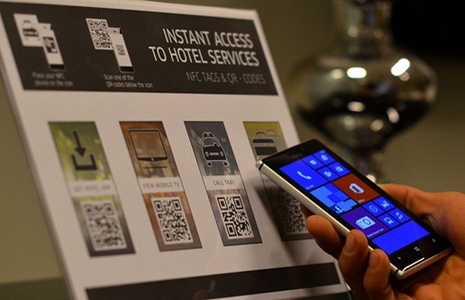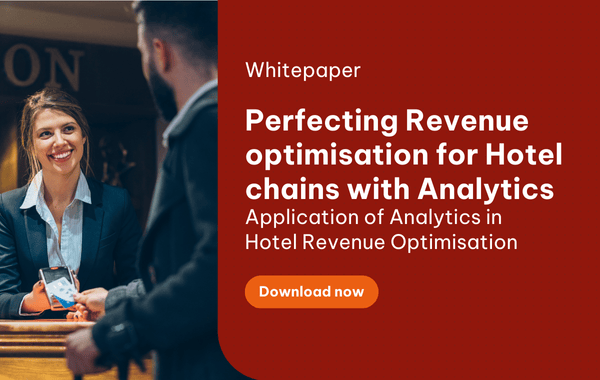Upgrading revenue management capabilities means not only implementing the right technology solution and integrating the right data sources — ones that have been shown to improve forecast accuracy and pricing decisions — but also putting the right organisational resources in place and creating a revenue-focused culture. Following are a few recommendations for hoteliers to keep in mind.
7 steps to upgrade your revenue management capabilities
1. Focus on data integration
The revenue management solution needs to seamlessly integrate with the property management system (PMS), which, in turn, needs to integrate with the central reservations system (CRS) or channel manager. For revenue strategy to be most impactful, the PMS also needs to incorporate valuable data streams from all point of sale (POS) systems in order to capture ancillary spending on food and beverage purchases, as well as function-specific solutions (spa, golf, etc.).
2. Focus on data quality
Choose data sources that will help with accurate decision-making and steer clear of all the rest. Be wary of incorporating every last piece of data that may be available from every possible data source into the decision model. Revenue forecasting accuracy tends to be a case of “quality over quantity” rather than “the more, the merrier.” While poor technology integration can result in some data discrepancies, most data accuracy issues stem from human error. Put consistent processes in place that staff can follow to help improve data accuracy.
Read more: Revenue Management at the Touch of a Button: the Success Story of Vienna House
3. Hire the right revenue manager(s)
The role of the revenue manager has never been more important. Of course, in smaller hotels with limited budgets, the revenue manager and general manager are oftentimes one and the same person. Unfortunately, general managers may have little or no training in the science of demand forecasting and price optimisation, invariably leading to suboptimal results.
Ideally, the individual running the show should have the specialised skills and knowledge needed to ensure the solution produces maximum benefit. In addition to employing large teams of seasoned revenue managers, some major hotels are now carving out positions for data scientists to evaluate all of the data that is collected and to refine the pricing models based on that data.
4. Think in terms of “total revenue management”
While guest room revenue is the bread and butter of most hotels, ancillary revenue steams can contribute significantly to overall revenue and profitability. Look to see if there may be a golden opportunity to apply revenue management tactics in these and other non-room categories to achieve optimal financial results.
Hotels that fail to embrace next-generation solutions that enable “total revenue management” will fall behind their competitors. The best of revenue management solutions allow hotels to consider the contribution margins and capacity constraints of not just guest rooms, but also restaurants, bars and cafes, spas, golf courses, ski lifts, and any other assets of the property.
Some advanced revenue management solutions include capabilities specifically focused on optimising meetings and events revenue and driving profitability. These capabilities allow hoteliers to optimise profits across multiple revenue streams, from guest rooms and meeting spaces to food and beverage, catering, A/V equipment rental, ancillaries and more.
Read more: How to Boost Hotel Revenue with Non-Room Services
5. Partner with the sales and marketing departments
The pricing recommendations and market insights generated by revenue managers can be valuable across multiple parts of the organisation. Access to the tools and dashboards should be made available to marketers, in particular, who are charged with demand generation activities.
Insights, such as those that forecast periods of high demand versus low demand and that reveal which customer segments are planning to book rooms for a certain period, should inform every campaign. The insights should inform how aggressive to be with marketing offers and promotions, toward which customer segments the offers and promotions should be directed, and when, exactly, to present the offers and promotions, and which marketing tactics are most likely to elicit the desired responses.

6. Ensure automation of room availability and rate change distribution
Hotels need to customise the direct booking engine within the CRS, or channel manager with revenue decisions and to automate channel-specific offers via the call center and other channels. The CRS should integrate with OTAs specific to the market in which the hotel operates. Built-in mapping capabilities should make it possible to organize OTAs, which today serve as both booking engines and online shopping channels. Channel management integration ensures that room rates and inventory availability update quickly and accurately across all booking channels. Otherwise, prices presented on some channels may be lower than desired. Similarly, rooms presented as available may, in reality, be unavailable, in which case the property risks becoming overbooked. Manually inputting room and rate changes can result in errors that, ultimately, can damage the brand’s reputation and result in revenue loss.
7. Build a revenue management strategy and culture
A revenue management strategy is a blueprint for improving financial performance over a specific period of time. It should incorporate all of the revenue streams from across all parts of the hotel as well as all of the revenue drivers, from the sales department to the online distribution channels.
The strategy should be built upon a solid foundation of revenue goals using targeted RevPAR, GOPPAR and other relevant metrics for tracking progress. It should include a timeline with key milestones and spell out the tactics for achieving success. The strategy should be as specific as possible, detailing, for example, how the property approaches pricing. Done right, the strategy will help create cognitive alignment amongst all employees regarding the value of revenue management.
 English
English  Vietnamese
Vietnamese 


